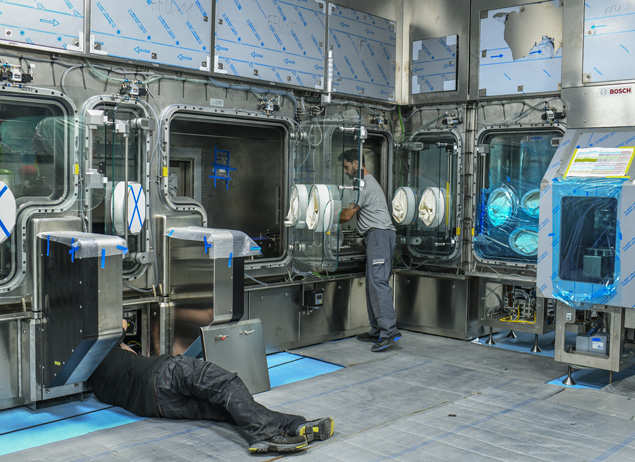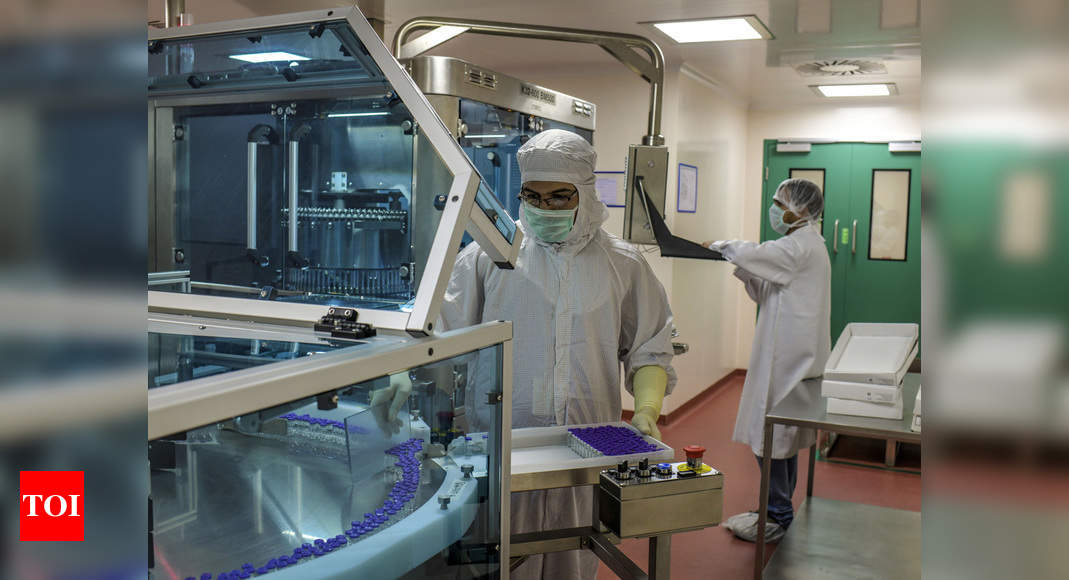PUNE: In early May, an extremely well-sealed steel box arrived at the cold room of the Serum Institute of India, the world’s largest vaccine maker.
Inside, packed in dry ice, sat a tiny 1-milliliter vial from Oxford, England, containing the cellular material for one of the world’s most promising coronavirus vaccines.
Scientists in white lab coats brought the vial to Building 14, carefully poured the contents into a flask, added a medium of vitamins and sugar and began growing billions of cells. Thus began one of the biggest gambles yet in the quest to find the vaccine that will bring the world’s Covid-19 nightmare to an end.
The Serum Institute, which is exclusively controlled by a small and fabulously rich Indian family and started out years ago as a horse farm, is doing what a few other companies in the race for a vaccine are doing: mass-producing hundreds of millions of doses of a vaccine candidate that is still in trials and might not even work.
But if it does, Adar Poonawalla, Serum’s chief executive and the only child of the company’s founder, will become one of the most tugged-at men in the world. He will have on hand what everyone wants, possibly in greater quantities before anyone else.

German technicians install a new high-speed vaccine assembly line at Serum Institute in Pune. (Atul Loke/The New York Times)
His company, which has teamed up with the Oxford scientists developing the vaccine, was one of the first to boldly announce, in April, that it was going to mass-produce a vaccine before clinical trials even ended. Now, Poonawalla’s fastest vaccine assembly lines are being readied to crank out 500 doses each minute, and his phone rings endlessly.
National health ministers, prime ministers and other heads of state (he wouldn’t say who) and friends he hasn’t heard from in years have been calling him, he said, begging for the first batches.
“I’ve had to explain to them that, ‘Look, I can’t just give it to you like this,’” he said.
With the coronavirus pandemic turning the world upside down and all hopes pinned on a vaccine, the Serum Institute finds itself in the middle of an extremely competitive and murky endeavor. To get the vaccine out as soon as possible, vaccine developers say they need Serum’s mammoth assembly lines — each year, it churns out 1.5 billion doses of other vaccines, mostly for poor countries, more than any other company.
Half of the world’s children have been vaccinated with Serum’s products. Scale is its specialty. Just the other day, Poonawalla received a shipment of 600 million glass vials.
But right now it’s not entirely clear how much of the coronavirus vaccine that Serum will mass-produce will be kept by India or who will fund its pro

